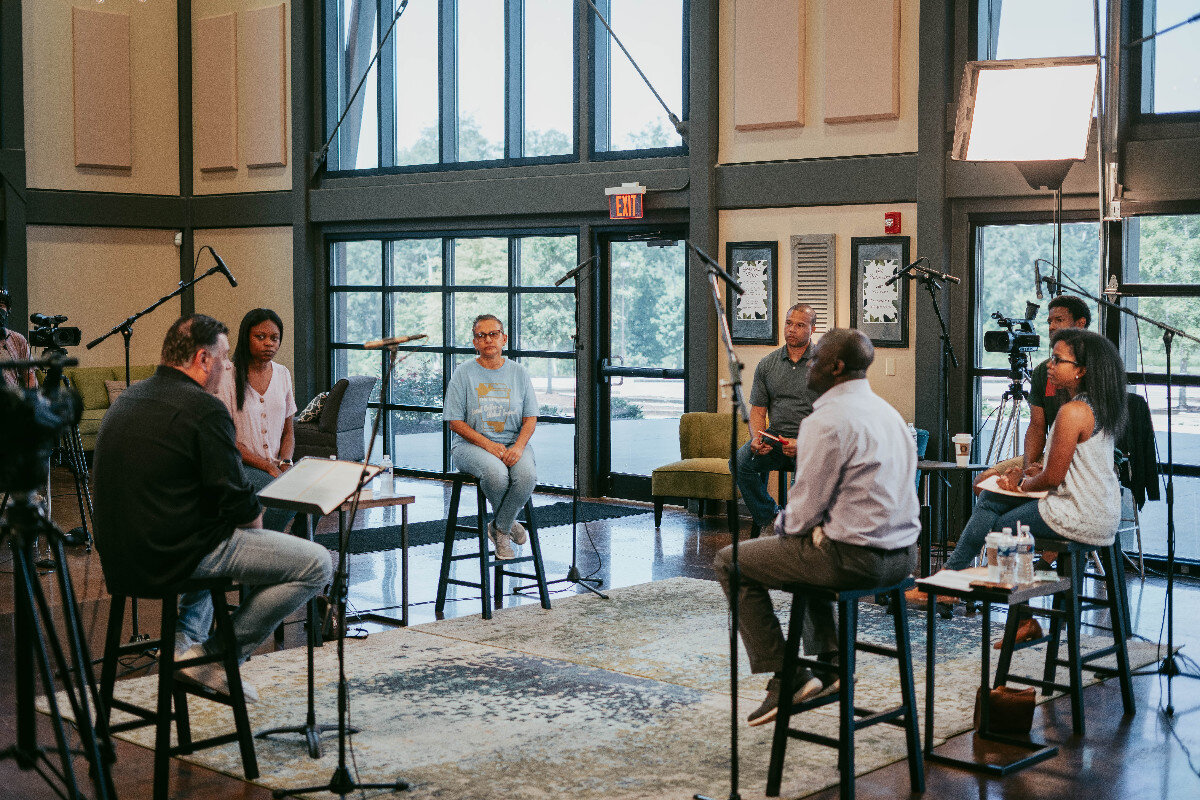Listening to Our Brothers and Sisters
This past week, I sat down with six black members of our church for the purpose of listening and learning. The conversation was captured on video and was then used in place of the previously planned message during our weekend services.
Meck is a family of faith—one that is wonderfully, beautifully and intentionally diverse racially. And as a family, we have been grieving over the death of George Floyd along with many others like him.
Sympathy is good, but as a family, we can do better than that. We need to have empathy. Those of us who are white have to enter into how our black sisters and brothers are feeling, and listen and learn how we can walk with them as their brothers and sisters during this time and into a future of hopeful change.
Here were my four sets of questions:
How are you doing? If we want to see you and hear you, what is it that we need to see, hear and know as your family about what you’re going through? We love you and we want to know.
I was reading an article this past week written by a black professor at Wheaton college who said that some will say that talking about such things as the killing of George Floyd in the context of the church is bringing politics into the church. “They’ll wonder why [we’re] not [just as] upset about black-on-black crime, or the breakdown of the black family... or looting, or whatever topic that helps us avoid looking at the thing itself. That ‘thing’ is the 400-year history of racial trauma and oppression still plaguing blacks in this country.” What would you say to help your white family “get” that a little more?
Those who have been involved in ministry that includes initiatives of justice and reconciliation have had a consistent response: a call for justice, a call for love, a call for reconciliation and a call for changes through public policy. First, would you agree that when there is a call for change, those are the four things we’re talking about? Second, there’s also a segment of the body of Christ who, unfortunately, has consistently remained silent—both white and black. What would you say to your family of faith about that?
I want to read something, and I’d like for you to respond to it:
“What unites us as a church now? What would this unity look like today for the family of George Floyd? What would it mean for us to be together with them? What would it mean to be alongside the black community in the United States, which over the years has experienced kidnapping, slavery, the injustice of the Jim Crow era, and the litany of contemporary sufferings that mark our lives now?
“It would mean that, as an act of love, the church says, ‘It should not have to be this way, and I will spend my life beside yours testifying to the values that the Christian tradition places on your black life.’”
Is that what you would hope your family of faith would be to you, and for you, now? Is there more you would add? We want to know how we can pray for you and what we can be doing for you. We’re family—help us be that family.
Their answers to all of the questions were measured, insightful, raw and unfiltered. Jesus shone through each one of them in a beautiful way. If you’re interested in watching the dialogue unfold, you can view it HERE.
What struck me most in their answers, despite the question at hand, was their deep desire for understanding and relationship. Yes, they were sad, angry, struggling, hurt, in pain, numb, scared… but more than anything, they were eager for a conversation like the one we were having. As one man put it, yes, “let’s talk about racial reconciliation, but before you can reconcile, there had to have been a relationship to reconcile.”
They all wanted that initial relationship, one forged on what might be uncomfortable conversations,
... because they know that on the other side is the loving family we want to be.
James Emery White
Sources
View the video of the conversation from Meck’s weekend services HERE.
Esau McCaulley, “A Nation on Fire Needs the Flames of the Spirit,” Christianity Today, June 1, 2020, read online.
Bob Smietana, “Efrem Smith: White Evangelicals Need to Humble Themselves,” Christianity Today/Religion News Service, June 1, 2020, read online.
Meck’s recent three-week series on race, racism and civility titled “Woke” can be found HERE.

